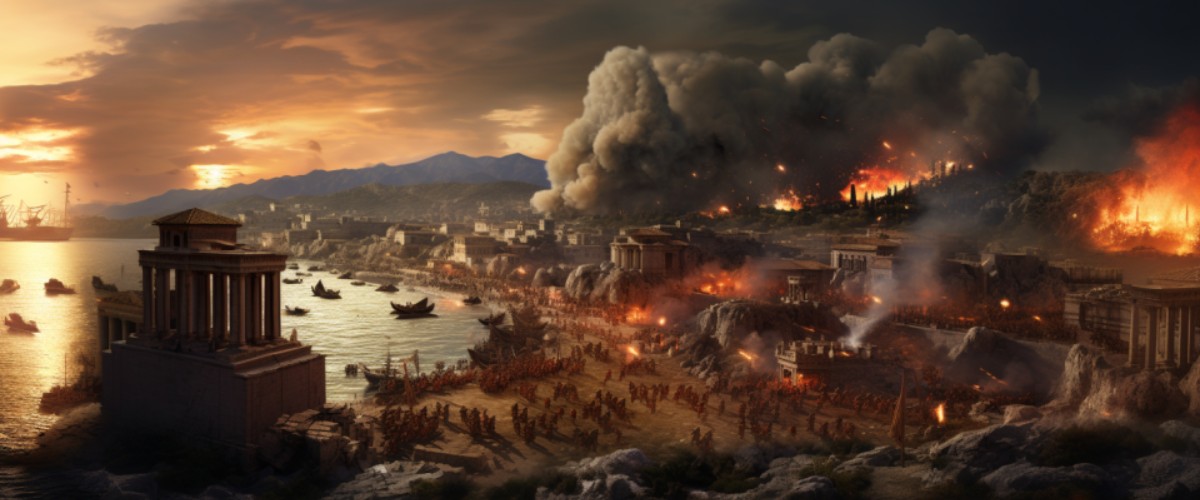Spanning over a century, the Punic Wars represented pivotal conflicts that not only shaped the destinies of two dominant powers of the ancient Mediterranean – Rome and Carthage – but also significantly influenced the later course of Western history.
Background: A Clash of Titans
Economic and Naval Power Competition
- Rome and Carthage, both formidable powers, inevitably clashed due to their expanding interests.
- Economic and naval supremacy in the Mediterranean was a key bone of contention.
Key Figures and Entities
- Hannibal Barca: The Carthaginian general, notable for his audacious journey across the Alps.
- Scipio Africanus: The Roman general who eventually defeated Hannibal.
- Carthage and Rome, each wielding substantial military and economic prowess.
Major Happenings: A Timeline of Turbulence
First Punic War (264-241 BCE)
- Focused largely on naval domination.
- Rome eventually prevailed, gaining Sicily and sowing the seeds for further conflict.
Second Punic War (218-201 BCE)
- Hannibal famously crossed the Alps, stunning Rome with his bold tactics.
- Initial victories for Hannibal culminated in a devastating defeat at the Battle of Zama.
Third Punic War (149-146 BCE)
- Rome besieged and eventually destroyed Carthage.
- The once-mighty city was razed, and its territory became a Roman province.
Immediate Outcomes: A Shift in Power
- Demise of Carthage: Once a bastion of prosperity, Carthage was obliterated, symbolising the end of a powerful adversary for Rome.
- Rome Ascends: Victories cemented Rome’s status as the unchallenged power in the Western Mediterranean.
Long-term Impact: The Paving of Rome’s Imperial Path
Alteration of Power Dynamics
- The fall of Carthage eliminated a significant rival and provided Rome with unmatched dominance in the region.
Expansion and Influence
- Rome absorbed Carthaginian territories, bolstering its economic and military might.
- A pathway opened for Rome to expand throughout the Mediterranean, shaping Europe and western North Africa’s future.
Culture and Civilization
- Roman civilization proliferated through conquered territories, influencing languages, infrastructure, and governmental structures in Europe.
Conclusion: The Echoes of Ancient Warfare
The Punic Wars, while ancient, persist in their influence, constituting a fundamental chapter in the tapestry of global history. Rome, bolstered by its triumph, forged an empire that moulded Western civilization, embedding Latin language, Roman law, and cultural norms into societies in a manner still perceptible today. The memory of Carthage, and the epic conflict between it and Rome, serve as a potent reminder of how the struggles for power and dominance perennially shape the pathways of nations and civilizations.
As we continue to explore the nexus between power, conflict, and cultural development, the Punic Wars provide a rich well of insight and a perennial symbol of the triumphs and tragedies that shape the course of history. Consequently, this epoch remains not just a historic event but a continual subject of study, informing our understanding of political, military, and cultural evolution across millennia.








